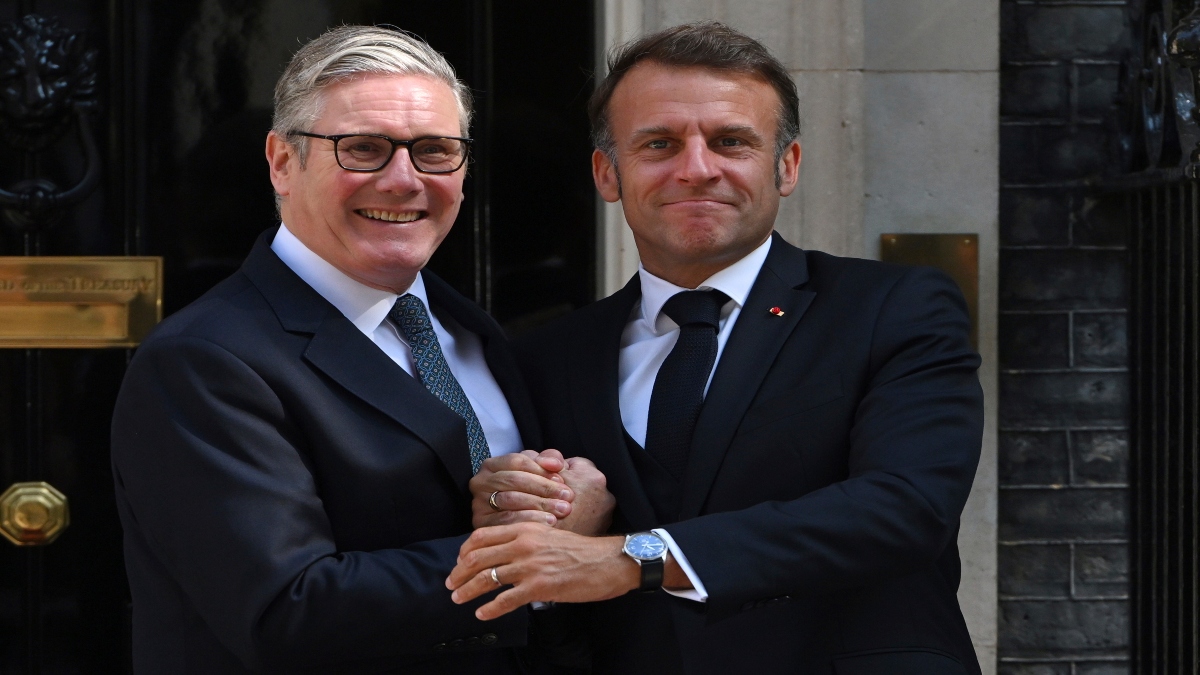French President Emmanuel Macron will conclude his three-day state visit to the UK on Thursday with a landmark agreement to strengthen nuclear coordination between Britain and France, Europe’s only nuclear powers.
The pact, which reinforces defence ties amid rising global threats, marks a historic step toward a more integrated European nuclear posture.
According to RFI, the state-owned international radio news network of France, in a joint declaration, the UK and France agreed for the first time to coordinate the use of their nuclear deterrents in the face of “extreme threats to Europe.”
While both countries maintain independent arsenals and are Nato members, the alliance’s collective defence obligations do not explicitly cover the use of nuclear weapons.
This new understanding, however, opens the door to a potential joint response if Europe’s security is severely threatened, according to reports.
The agreement gains significance against the backdrop of ongoing Russian aggression and growing instability on the continent.
As Russia’s war in Ukraine drags on, the prospect of a stronger, more unified European nuclear stance is likely to serve as a deterrent to further escalation.
UK Prime Minister Keir Starmer and Macron also reaffirmed their commitment to supporting Ukraine and tackling undocumented migration across the Channel.
In a parallel move, the two countries will continue supplying Kyiv with Storm Shadow cruise missiles — long-range weapons jointly developed by both countries — and will begin work on a next-generation replacement system.
Impact Shorts
More ShortsSpeaking ahead of Thursday’s defence summit, the UK Ministry of Defence said the renewed nuclear cooperation reflects a “refreshed” Lancaster House agreement, first signed in 2010.
The pact is being reimagined to form a new “entente industrielle,” positioning defence as a driver of economic growth and technological innovation.
“The threats we face are multiplying — from war in Europe, to new nuclear risks and daily cyber-attacks,” AFP quoted Starmer as saying.
“As Nato allies with a deep history of defence collaboration, today’s agreements take our partnership to the next level. We are ready to use our shared strength to enhance our capabilities, support thousands of jobs, and keep our people safe,” he added.
Macron echoed that sentiment in a speech to London’s financial sector on Wednesday night, saying Britain and France are “stronger together.”
Later on Thursday, Macron and Starmer were set to join a virtual meeting of the “coalition of the willing” on Ukraine, alongside Ukrainian President Volodymyr Zelenskyy, German Chancellor Friedrich Merz, and Italian Prime Minister Giorgia Meloni.
The group is discussing support for a future ceasefire and possible peacekeeping deployment.
As the summit ends, the newly inked nuclear pact marks a powerful symbol of renewed Franco-British unity and potentially, the foundation of a broader European nuclear shield.
With inputs from agencies


)

)
)
)
)
)
)
)
)



